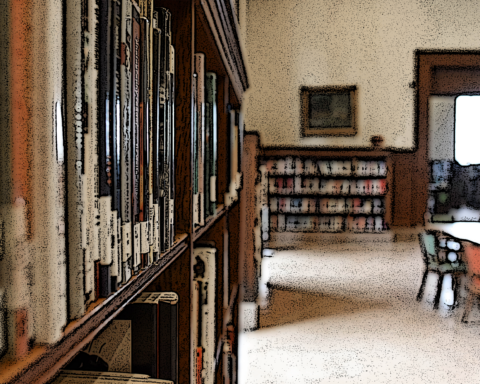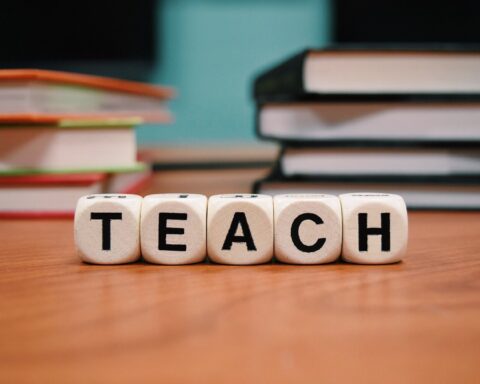One Presbyterian’s Experience Participating in International Educational Mission

Occasionally something happens in your life that you can only explain as a “God-moment.” For me, teaching in Pakistan was just such an experience.
I met Veeda Javaid, the Executive Director of the Presbyterian Education Board (PEB) in Pakistan, at the Synod of Lakes and Prairies’ “Synod School” in July 2014. She was there with a board member from Friends of PEB teaching a class about the organization. I was initially enrolled in another class but was unable to take it, so I ended up in Veeda’s class instead. I was immediately drawn in by her amazing stories. As someone who holds a Bachelor’s Degree in Elementary Education, I was interested to see the schools myself. I tentatively began a discussion with Veeda about visiting Pakistan, and by the end of the Synod School week, she had me convinced that I needed to go.
The Presbyterian Education Board in Pakistan runs twelve schools in the Punjab region: seven girl’s schools and five boy’s schools. Pakistani law requires that boys and girls be educated separately beginning in class six, but there is some mixing of genders in classes nursery through five.
___________________________________________
In the 1800s, missionaries purchased land and built schools to educate Pakistanis. The schools were well run and provided quality education for many students – and not only for Christians!
___________________________________________
In the 1800s, as I learned, missionaries purchased land and built schools to educate Pakistanis. The schools were well run and provided quality education for many students – and not only for Christians! However, in the years following 1972, when the schools were nationalized and thus acquired by the government, the buildings fell into disrepair and the quality of education decreased significantly. In 1998, the government began returning schools to their founders, and PEB was tasked with rebuilding both school buildings and the quality of education. The Presbyterian Education board is still fighting to get some of the schools it founded back from the government.

I arrived in Lahore, Pakistan in November, after the school year had already started, and began my work at Kinnaird Academy. Since I was only staying for three months, I was not assigned to a single classroom but instead volunteered in many classrooms. The school offered me a variety of ways to get involved, one of which was assessing the reading comprehension levels of the girls in grades six and seven. I used the A-Z Reading Comprehension Program to test into which level each girl placed.
English is the third language spoken by the students – after Punjabi, the regional language, and Urdu, the national language – so I began my testing at a lower level than I would have for native English speakers. I quickly discovered that most of the girls had excellent reading abilities – some even read the passage with one-hundred percent accuracy. When I asked the girls to retell the story, however, I found many had not grasped the basic concept of the passage. Most were also unable to correctly answer multiple-choice questions about what they had just read. I was surprised to see such poor comprehension coupled with such skilled reading!
___________________________________________
It was disheartening for me to see how greatly the terrorist attack in Peshawar affected education throughout Pakistan.
___________________________________________
I noticed the program had a clear bias for English speakers residing in the United States. The passages used English names and places, some of which the girls had most likely never heard of – the University of Kansas, for example. There is definitely a need in Pakistan, as I imagine there is in many other places, for a leveled reading program specifically designed for non-native English speakers.

I was also surprised to learn how eagerly the girls had been asking the principal when it would be their turn to assess their reading level with me. I know when I was their age – and even now, to be honest – I would be extremely nervous to be tested in another language by a stranger who is a native speaker of that language. Can you image how stressful that could be? And yet these girls were excited to read for me and practice their English speaking skills.
Assessing the students took me right up to Christmas break, which was extended due to the horrendous attack on the school in Peshawar. In response, the government required schools to close and set a list of tasks to be completed before re-opening. Since Kinnaird Academy is considered a mission school, we were high on the list of schools threatened by attack. Among other things, the school was required to raise the boarder walls, fix the razor wire on top of the boarder walls (or in some cases, add more), and station an armed guard at the front gate before it could re-open. These tasks took extra time, and the price of razor wire increased because of the increased demand. It took time away from students’ education and cost the school thousands of dollars. It was disheartening for me to see how greatly the terrorist attack in Peshawar affected education throughout Pakistan.
___________________________________________
Their comprehension began to improve, and they felt comfortable enough to ask me questions, including the meanings of words they didn’t know.
___________________________________________
Once Kinnaird Academy re-opened, my job responsibilities shifted, and I began going to different classrooms to read stories to the students. At first it was hard for many students, especially the young ones, to understand my accent, but after a few stories they began to understand and answer my comprehension questions well. Class five was supposed to read the novel George’s Marvelous Medicine by Roald Dahl, so I went to that class almost daily and read with them. The girls took turns reading paragraphs aloud. Throughout the story their reading fluency began to progress, which was exciting for me to hear. Their comprehension began to improve as well, and they felt comfortable enough to ask me questions, including the meanings of words they didn’t know.
I became friends with the teachers at the school. I was able to have discussions with them about how life in Pakistan compared to life in the United States and to share stories about my friends and family back home. A break for tea was held every day, which was a wonderful time for me to get to know the teachers better. I sincerely miss the friends I made at Kinnaird Academy and look forward to seeing them again someday.

During my time in Pakistan I was also able to travel and see some of the other schools run by the Presbyterian Education Boad. The PEB schools have various inter-school competitions throughout the year, including an English debate, an Urdu debate, a science competition, a Christmas choral competition, and various sports competitions. My stay in Pakistan afforded me the opportunity to attend the both the Christmas choral competition and science competition; both were experiences I will not forget. Inter-school activities like these provide invaluable experiences for the students involved.
As I’ve reflected on my trip in the few days since I’ve been home, I don’t think it’s an exaggeration to say that visiting Pakistan was one of the best experiences of my life thus far. I felt like I was exactly where God was calling me to be. I made many new friends and was able to experience the wonderful hospitality of Pakistani culture. I look forward and hope to return one day; in the meantime, I know I will hold the memories near to my heart forever.
AUTHOR BIO: Gina Meester is a Ruling Elder of the Presbyterian Church (U.S.A.) and resides in Lincoln, NE. She loves to travel, and she spent a year as a Young Adult Volunteer in Tanzania.
*****
Read more articles in this issue: Pedagogy for the Distressed!





Unbound Social